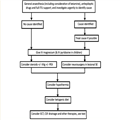* 2011-temele cele mai importante
- How Prevalent Is Bipolar Disorder?
- How Often Is Bipolar Disorder Disguised as Depression?
- Impact of Prior Illness in Bipolar Disorder
- Update on Antimanic Treatments: An Efficacy Comparison
- Are 2 Antidepressants Better Than 1?
- Can Schizophrenia Be Diagnosed With a Blood Test?
- Is Antipsychotic-Related Weight Gain Necessary for or Related to Efficacy?
- Switching Antipsychotics to Reduce Metabolic Risk
- Can Antipsychotic Polypharmacy Be Safely Reduced in Schizophrenia?
- Long-acting Injectable Risperidone vs Oral Antipsychotics
- Long-acting Injectable Antipsychotics vs Orals: A Look at Hospitalization
* tratamenetul primului episod de schizofrenie
Summary
Early treatment of schizophrenia and related psychotic disorders is likely to minimize the risk for complications of untreated psychosis, including dangerous behaviors and functional impairments. Intervention soon after the onset of illness may increase the likelihood of recovery. Choice of antipsychotic agent should be based on the response of the individual patient to the medication trial, including efficacy and tolerability. It is important to remember that negative symptoms may be secondary to the use of an antipsychotic agent, and these secondary negative symptoms may impede functional recovery. Remission should be expected, but once remission from the first episode is reached, the clinician and patient face the difficult issue of maintenance treatment duration. Despite remission, relapse risk is very high, especially if antipsychotic medication is discontinued. Clinically useful predictors of the small minority who maintain in remission without pharmacotherapy have not yet been identified, and the optimal length of maintenance treatment for recovered patients is not known. Prevention of recurrent relapse may reduce the risk for clinical deterioration and the development of chronic and disabling symptoms.
* adhd
To summarize, behavioral therapy is the psychosocial intervention that has the greatest amount of evidence to support its use in children with ADHD and for that reason it is
prominently mentioned both within the American Academy of Child and Adolescent Psychiatry's Practice Parameters and in American Academy of Pediatrics' clinical guidelines that pertain to ADHD
in children. Although medications often grab the headlines, it is important to remember that effective and evidence-based psychosocial treatments exist for children and teenagers with
ADHD.
*alcoholism
Mifepristone reduces relapse in alcoholics
Based on a rodent model, researchers at UCSF have reported in Neuropsychopharmacology that the pregnancy termination agent, mifepristone (RU-486) can reduce relapse in alcoholics. Mifepristone blocks the activity of progesterone and cortisol, which are known to promote alcoholism and relapse. In the study, the rats were trained to press a lever for alcohol or sucrose solutions. After a period of abstinence, the rats were "stressed" by administering yohimbine. Rats that received mifepristone prior to yohimbine sought the alcohol solution less frequently than rats that received yohimbine alone
* efectul antidepresiv al neurolepticelor atipice
*status epi
Conclusion
Super-refractory status epilepticus is a serious condition. The mortality rate is substantial, reported in various series between 30 and 50%. Yet, despite the fact that it remains an important clinical problem in all neurology centres worldwide, for many therapies, and treatment approaches, there is a remarkable lack of published data concerning effectiveness, safety or outcome. Treatment protocols, therefore, are needed and in Fig. 2, a general approach to treatment is proposed, based on the clinical experience and the published literature. Doses and parameters of treatment are shown in Table 2 and Table 3.
Recent findings In the last years, few new pharmacological interventions for mood disorders have been developed. Recent studies seek to provide alternative treatment strategies to achieve higher remission rates, including the association of antidepressants, mood stabilizers and psychotherapy and the treatment of specific clusters of symptoms, such as the adjunctive treatment of cognitive impairment with cholinesterase inhibitors. Also, recent studies have been assessing the potential of pharmacogenetic information in the prediction of treatment outcomes.
Summary These factors altogether are expected to help the development of personalized treatment strategies that may improve outcomes with fewer adverse effects.

No comments:
Post a Comment